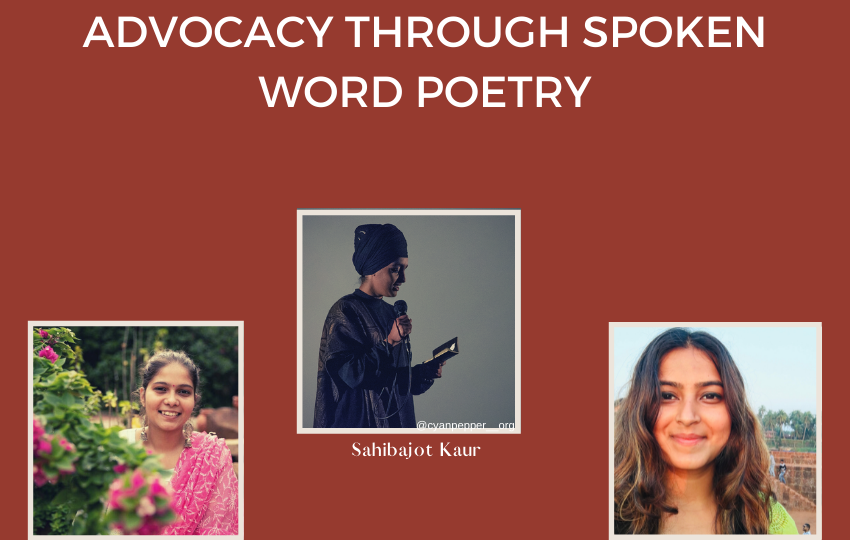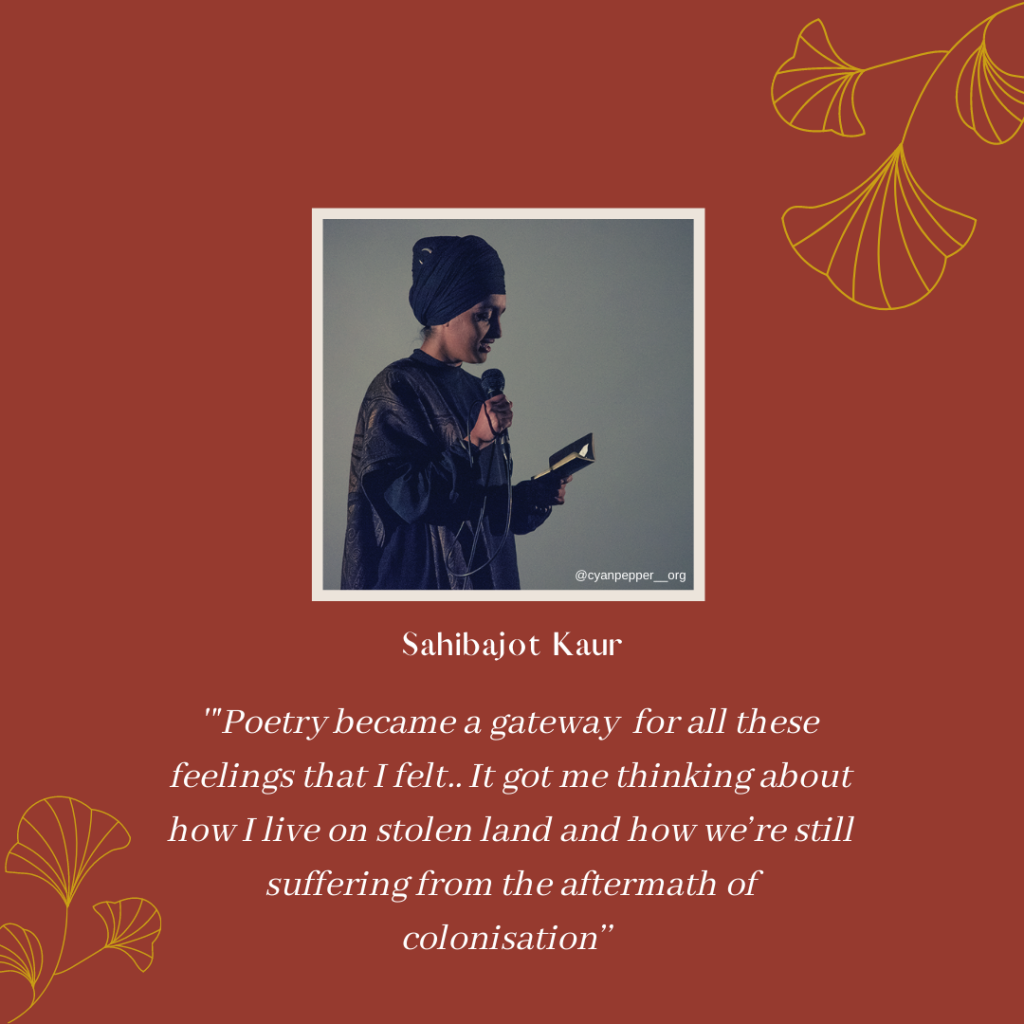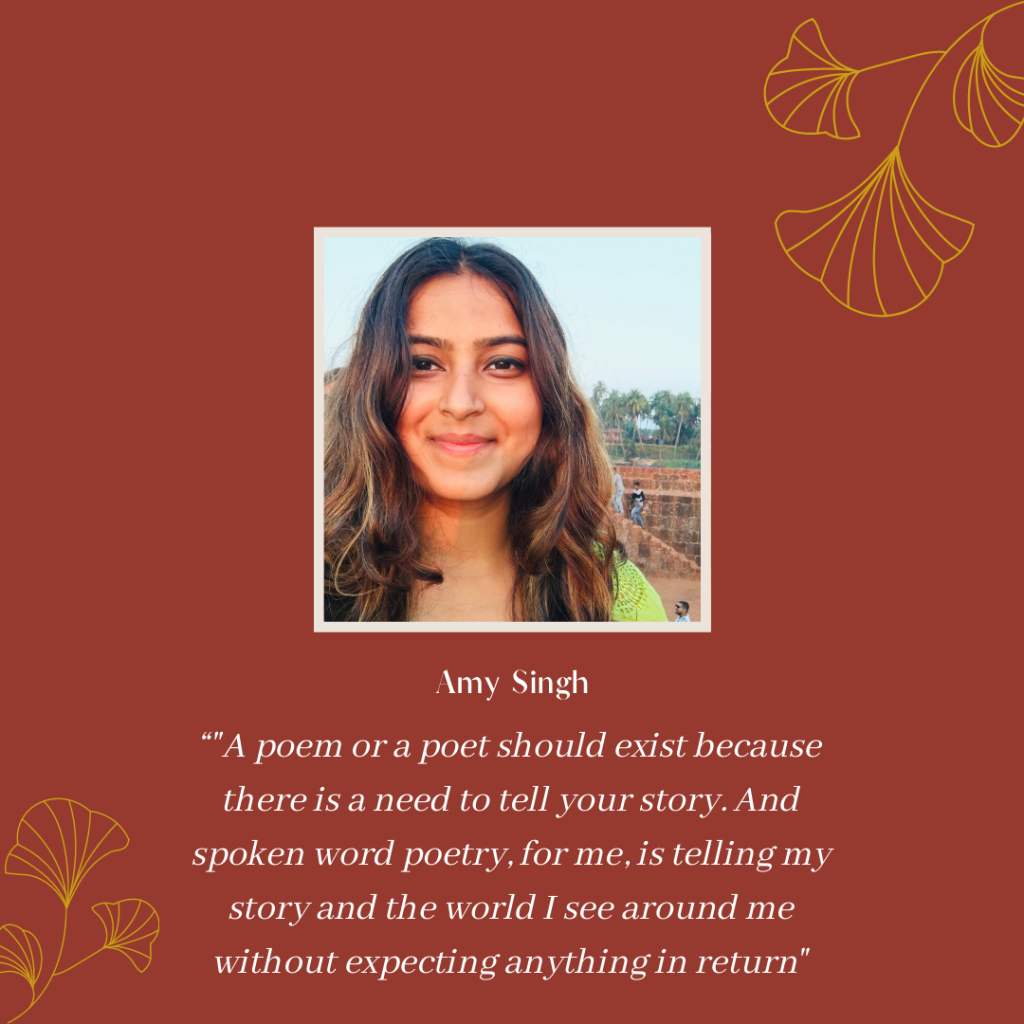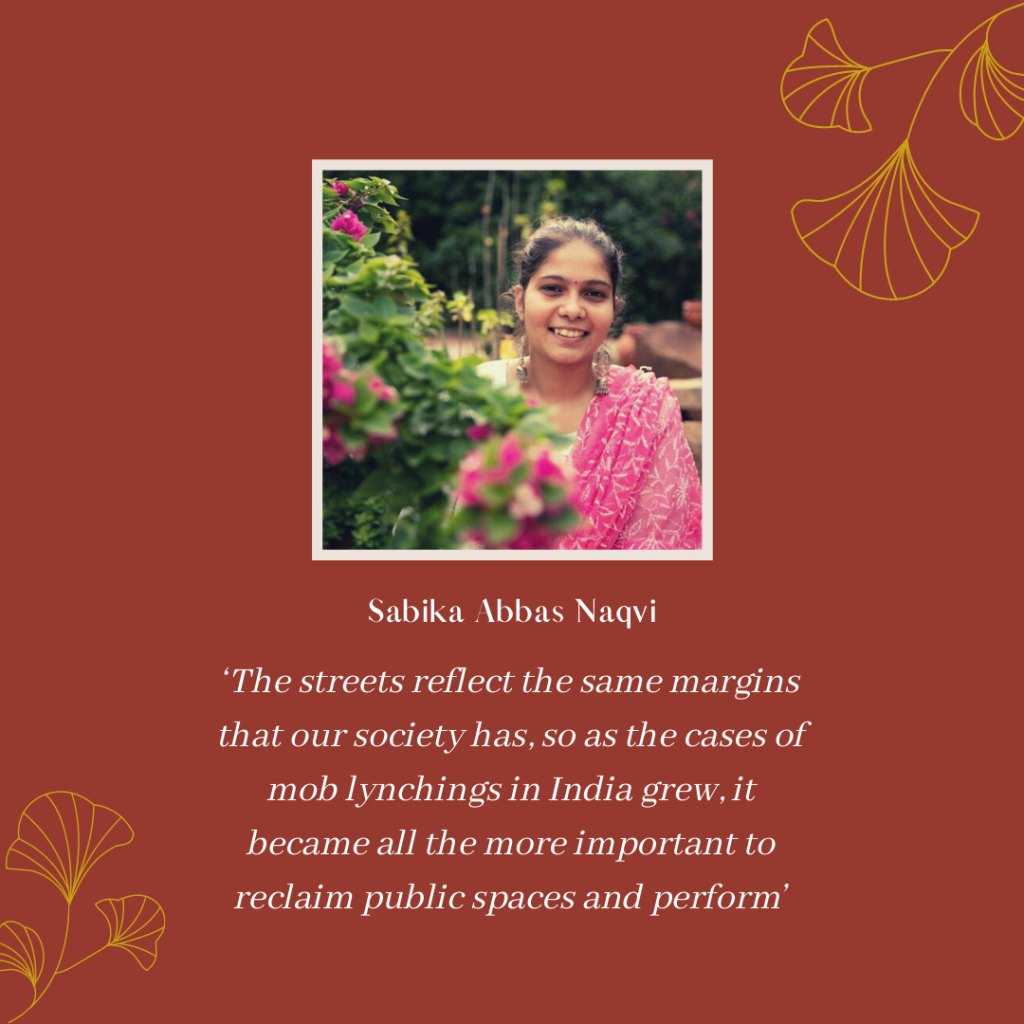
“..On the other side, we will come out more compassionate. kind, dismantling systems of marginalization, more love and safe spaces, more calm and less races, inclusive workspaces, cleaner air and cleaner hearts, original news and greater starts.” This poem was performed by Sabika Abbas, spoken word poet and activist, at our event, ‘Advocacy through Spoken Word Poetry’.
Her words hold more power than ever in a period where the world faces unprecedented and turbulent times. As she rightly pointed out, what makes spoken word poetry a strong tool for advocacy, is that it is not to be kept preserved in libraries or bookstores, but to be performed on the streets where the realities of society are out in the open, and where an audience can stop and take notice. It is performed to ask uncomfortable questions and advocate for the voices of the voiceless. When the world grapples with hopelessness and despair, words are a powerful tool to unify people and garner hope.
We hosted a panel of pathbreaking south Asian female poets – including Sahibajot Kaur, Amy Singh & Sabika Abbas Naqvi – who use spoken word to foster love and equality and challenge age-old constructs that hold us back.

Sahibajot Kaur, on acknowledging her privilege and challenging Eurocentric norms
For Sahibajot, it was the work of a few reclaimed poets like Jasmine Kaur and Damneet Kaur that inspired her to create poetry to bring to the forefront forgotten injustices of the past. She facilitated the Australian tour of these poets from Canada and USA respectively because she felt like there was a lack of South Asian activists in Australia who openly used poetry for social activism. They organised a series of workshops under the event ‘Decolonise your Body’, where they performed spoken word addressing the colonial and eurocentric expectations that still confine and guide the behaviour of South Asian women.
“It got me thinking about how I live on stolen land and how we’re still suffering from the aftermath of colonisation’’ said Sahibajot, as she spoke about how poetry became a medium to express her feelings about the inequalities she saw around her. As an Architecture graduate, for her final thesis project on the slums of Chandigarh she tried to integrate her social activism and poetry with her design. The project was extremely successful in Australia and she was awarded the 2018 Commissioner K. G. Hoffman Prize in Urban Design.

Amy Singh, on the use of words to make an impact in the face of cross-border hatred
Her first introduction to spoken word poetry was when she was not even aware of the medium, but simply in awe of the power it held. When Amy Singh saw an old man play the flute and recite his poems on the streets when she was seven years old, she was fascinated to see large crowds of people gather around him and watch him perform for hours at a stretch. Years later, she discovered that poetry was the most accessible form of expression she found within herself.
Speaking about her project ‘Daak: To Lahore with Love’ and the massive popularity it gained, she recounted how it began as a series of personal letters and poems she would write to the neighboring nation, when the uncertainty of war loomed over the two countries – India and Pakistan. When her favourite Biryani restaurant in Chandigarh changed their name from Lahore Chowk to Lucknow Chowk, she was heartbroken to see political rivalry seep into common people’s behaviours as hatred. Gradually started the cycle of a personal letter that turned into a performance piece that evolved into a larger project that was incredibly received by people of both the nations.
“Who would decide what the standards of spoken word poetry are? A poem or a poet should exist because there is a need to tell your story. And spoken word poetry, for me, is telling my story and the world I see around me” said Amy as she spoke about how she feels no pressure to stick to a particular format or teach anything through her poetry. She instead emphasised on the power words possess to spread love in the face of divisiveness. “It is just a matter of tapping into what we know and exercising that expression”

Sabika Abbas, on challenging the status quo and amplifying the voices of the fringes
Sabika’s tryst with poetry has a significant origin story that stems from the unfair treatment of marginalised communities in India and the perpetual state of fear they live in. For her, street performance symbolised equality. ‘The streets reflect the same margins that our society has, so as the cases of mob lynchings in India grew, it became all the more important to reclaim public spaces and perform’ she said as she answered an audience member’s question on religious unrest in India and how it motivated her to stand up against communalism and fascism through the use of spoken word poetry.
She started writing poems at an early age, and also spoke about using Urdu and Awadhi instead of English, for the simple reason that for the longest time she considered speaking in English more aspirational than using her mother tongue for self-expression, which was a conflict she had to overcome. Sabika also raised important points about how the voices of marginalised communities can be amplified by performing spoken word in public spaces. Last but not least, she emphasised on how in times of shared grief, especially in India, can people instill hope in one another by standing up for what is right. “We have hearts big enough to hold each other’s hands”
In essence, poetry does not have to adhere to a format or be confined to a space
Our speakers spoke about not feeling the pressure of adhering to a rhyming scheme or having their poetry popularised in traditional formats. Sabika spoke about how she felt that socially driven poetry does not only belong in universities, as a part of a curriculum but has to be made accessible to the general public to initiate change. Performing in open spaces is one way to achieve that. Amy mentioned how social media plays an equally important role in spreading your message to the masses. media might differ, but advocacy through poetry must be accessible to all.
Do follow @australiansouthasiancentre for all the latest updates on the Australian Indian Digital Creative Festival. Tune in on 27th May at 7:00 pm AEDT (2:30 pm IST) for the third event of the festival, Amplifying South Asian Voices in TV and Film.
Written by: Dishi Gahlowt

